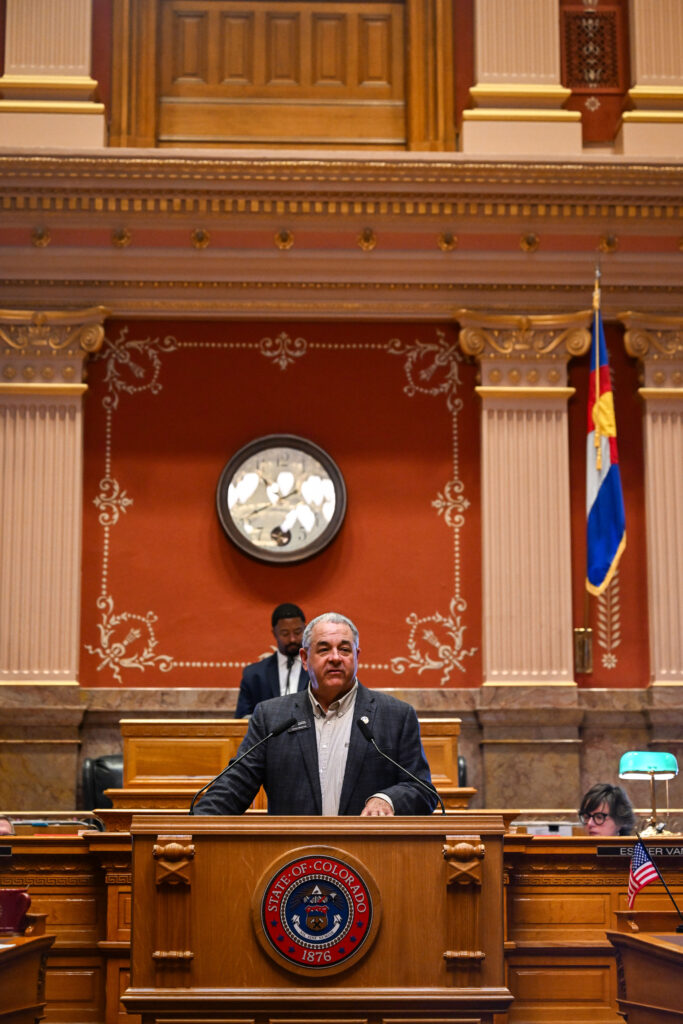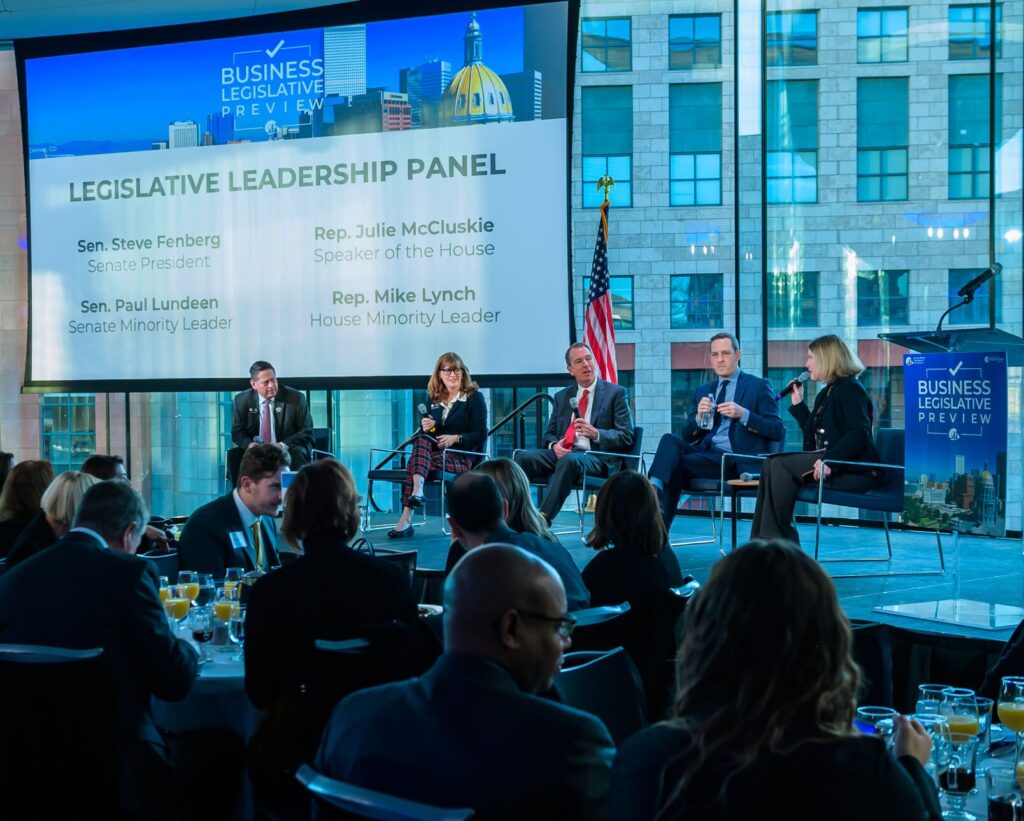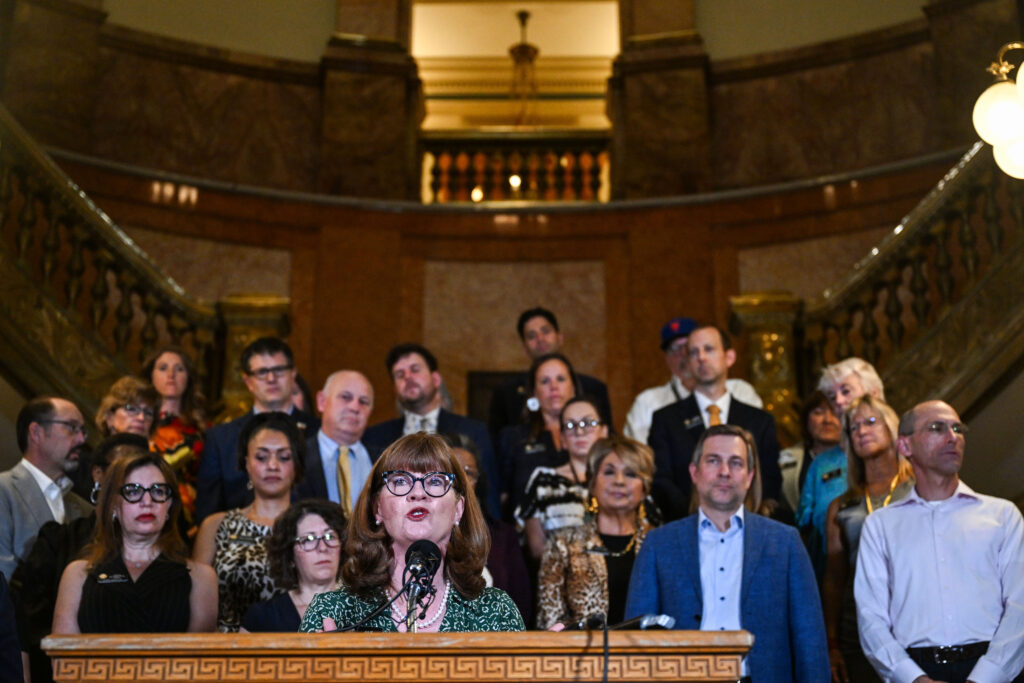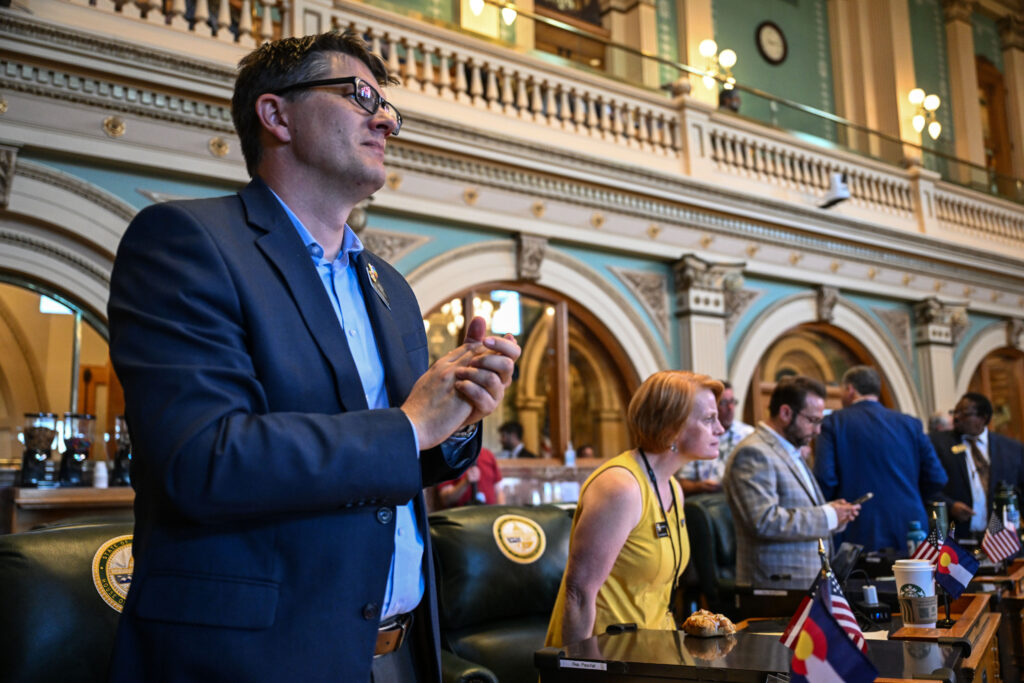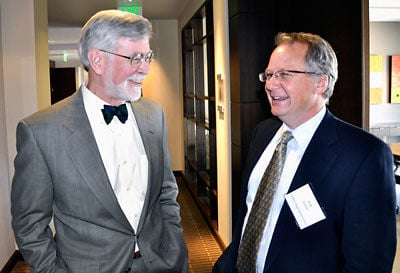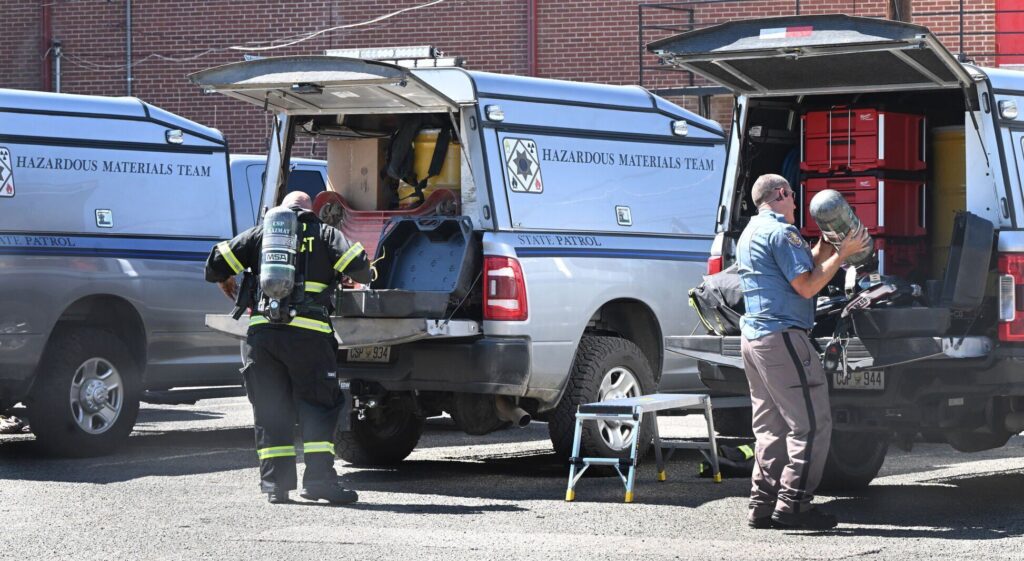‘Political theatre’ or necessary action? Colorado lawmakers weigh on on ‘divisive’ session
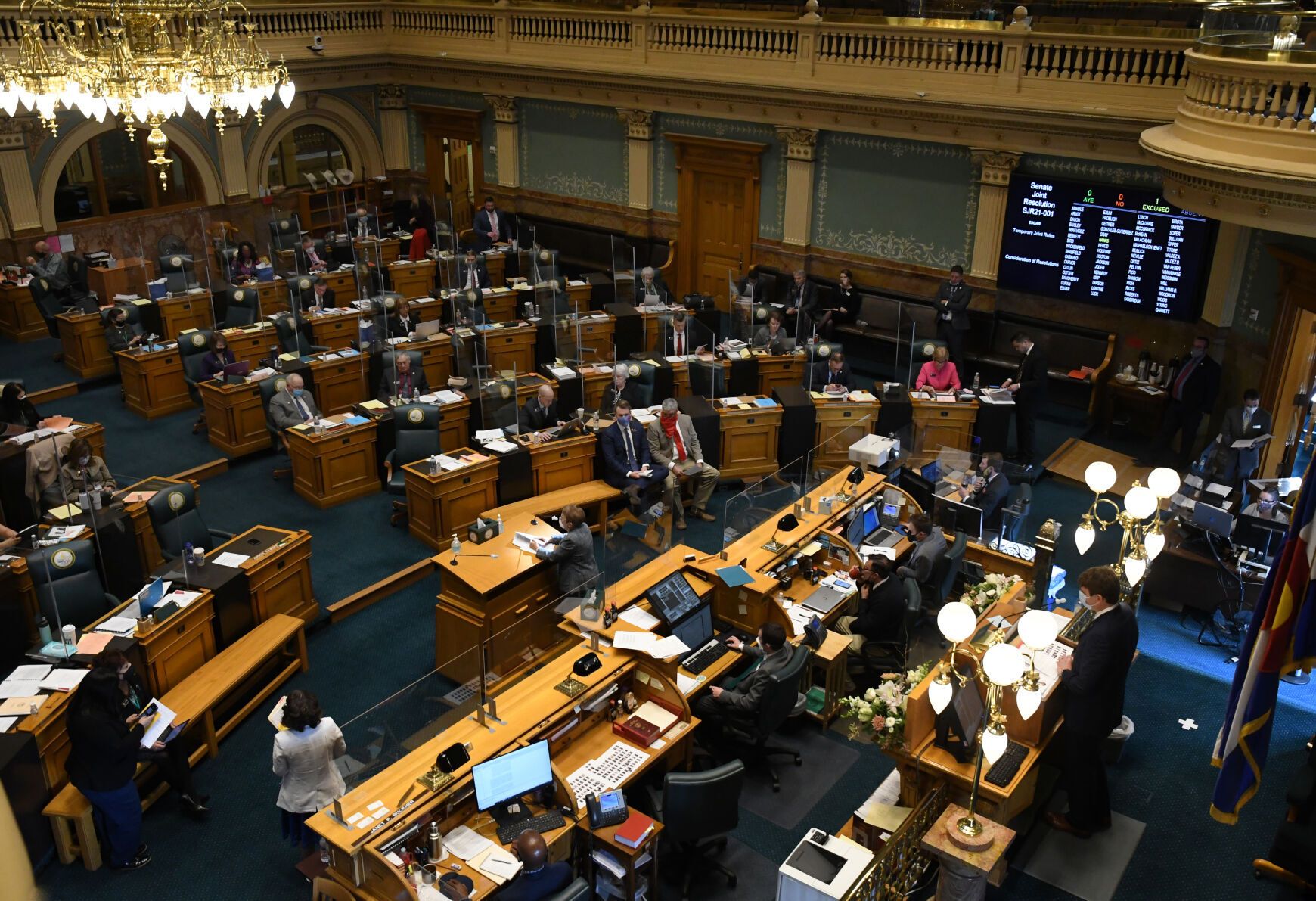
While Democrats and Republicans clashed over the cause of an $800 million budget shortfall plaguing the Colorado state government, they agreed that the recently-concluded special session, which sought to solve that deficit, was one of the most “divisive” in years.
On the one hand, Democrats insisted they got the work done.
On the other hand, Republicans called it “political theatre.”
“Overall, I thought we got the work done that we needed to get done,” Senate President James Coleman told Colorado Politics. “We faced it head-on, rolled up our sleeves, and put families ahead of corporations.”
“The script was written before we ever even stepped foot into the building,” countered Senate Minority Leader Cleave Simpson. “All that effort was cast. There was no engagement. There was no conversation from the other side of the aisle. It felt like nothing more than political theatre for six days.”
Coleman and Democrats insisted that the special session was necessary because of the fiscal gap that Congress created when it passed H.R. 1, resulting in an $800 million shortfall in the state budget.
In a statement, Gov. Jared Polis echoed that view — and also sharply criticized Colorado’s Republican delegates to the nation’s capital.
“The numbers speak for themselves and H.R. 1 is the entire reason for this special session, plain and simple,” his office said.
His office said when the General Assembly adjourned in May, Colorado had a “balanced budget with a healthy surplus.”
But, the governor said, after “Representatives (Gabe) Evans, (Jeff) Hurd, (Jeff) Crank, (Lauren) Boebert voted to increase the national debt by trillions of dollars, they also blew a hole in our state budget. I reconvened the legislature to do the responsible thing to protect Coloradans and reduce the impacts of what Congress did to people and families. I appreciate the partnership of the General Assembly in getting this done.”
During the special session, lawmakers approved 11 bills, mostly along party lines, and sent them to the governor for his signature.
The lawmakers adopted a range of tax measures aimed at generating state revenue. They also confirmed the governor’s authority to make spending reductions, which he is expected to start outlining on Thursday.
They didn’t specifically adopt a policy or declaration saying the state will use its reserve to plug a third of the budget deficit, though policymakers coalesced around that idea.
Republicans: Session accomplished little, if any
Republicans, meanwhile, said the special session did little to nothing to fix the budget deficit, with several using the phrase “political theatre” to describe what took place at the state Capitol for six days.
GOP lawmakers maintained that the revenue-boosting tax bills accomplish nothing more than increase taxes, thereby punishing Colorado residents and businesses.
Sen. Lisa Frizell theorized that Polis called the special session as a publicity stunt — to blame the Trump administration for Colorado’s budget woes.
“I don’t feel like a lot got accomplished,” she said. “We didn’t address the structural deficit. We have grown (the state) government irresponsibly. There is just no appetite for (Democrats) to cut state employees and spending.”
Polis has implemented a hiring freeze through the end of the year, but Frizzell claimed state agencies are not taking it seriously and are working around it.
Simpson, the minority leader, and Sen. Byron Pelton said they agree that the special session was more of a publicity stunt than a genuine commitment to addressing the state’s budget issues.
Simpson told Colorado Politics he feels “disappointed and depleted” after the session concluded on Tuesday. He said the only positive outcome from the special session was extending the deadline for artificial intelligence regulations.
Frizell said while a positive step, the decision to delay the AI regulation’s implementation could have been done at the start of the 2026 session, instead of costing the state more than $100,000 to host the special session.
Simpson, who said he has worked to build a better relationship with Democrats and create a more bipartisan atmosphere, said Democrats’ handling of this special session will likely exacerbate divisions in future sessions.
“We got there, and all we were told was ‘this is all the Republicans’ fault’,” he said. “With or without the governor’s office, we should have developed a plan together. In this session, I saw the most divisive conversations I ever have from a regular or special session.”
Republican Sen. Barbara Kirkmeyer was blunter.
“It turned out horribly for the state of Colorado, and especially small businesses,” said Kirkmeyer, who is a member of the state’s Joint Budget Committee. “The cost of living here is too high. Taxes are being raised, and (Democrats) just keep blaming something else for the problems.”
Kirkmeyer told Colorado Politics the Democratic-led legislature and the governor have gotten good at “scapegoating” the state’s growing budget crisis. She said they once blamed the COVID pandemic — and now they are blaming the Republican-led Congress.
Republican lawmakers pointed out that before the federal budget was introduced this year, Colorado already had to contend with a $1.2 billion deficit. The problems are already in place, and the crisis will continue to get worse if Democratic leaders do not address spending, she added.
Kirkmeyer and Simpson said that Democrats refused to discuss the more than $700 million in tax credits being spent, with both noting that just pausing them would provide immediate budget relief.
Simpson said dealing with budget issues resulting from federal actions is nothing new, insisting that Democrats blaming the Trump administration is “hypocrisy.”
“We were dealt the hand we were dealt,” he said. “We have had seven years of a one-party rule that has pushed us to these budget issues. The state has pushed unfunded mandates onto cities and counties for years. This (federal budget) is no different than what they have been doing in this state.”
Noting that Democrats are calling the sale of tax credits to help pay for health insurance a win, Kirkmeyer noted that they are planning to sell credits valued at $250 million for $200 million.
“We are going to be losing $50 million,” she said. “Taxes are being raised while (Democrats) just blame someone else. They aren’t even allowed to raise taxes without voter approval. They are doing nothing to fix our general budget.”
Kirkmeyer pointed to the Taxpayer’s Bill of Rights as a constitutional measure that requires lawmakers to get voter approval before increasing taxes. Pelton said most of the bills passed during the special session will likely be challenged in court because of TABOR.
“This special session was nothing more than a colossal waste of time,” Pelton said. “The hypocrisy of it all. The governor called for us not to cut spending, but increase revenue.”
Democrats: Actions during special session will provide immediate relief
Sen. Jeff Bridges said he, too, is disappointed — but primarily because of the extreme “partisanship that was high for this special session.”
“Really, you can debate or disagree, but what the federal government did is impacting us,” he said. “It was a hyper-partisan session, where we were dealt a s***** hand.”
Bridges, however, agreed that the state legislature should have conducted more discussion on how to run the state government more efficiently and cut costs.
Stressing that the federal budget caused significant damage to healthcare, Bridges said a positive bill emerged from the special session — House Bill 1006, which allows the sale of insurance premium and income tax credits and authorizes a $100 million interest-free loan from the Unclaimed Property Trust fund to the Health Insurance Affordability Enterprise. The money would be distributed to the state’s reinsurance program, health insurance carriers to make plans more affordable, and other programs administered by the enterprise.
Bridges said this bill will provide immediate relief to counter federal cuts.
Democratic Sen. Dylan Roberts said he disagrees with how Republicans have characterized the special session, pointing to HB 1006 as a measure that would help Colorado residents.
However, he agreed that the session was extremely divisive, though he added, “Overall, it was productive,”
“It will help Colorado address the situation we find ourselves in because of H.R.1.,” he said.
In the governor’s hands
With the special session affirming the governor’s ability to make cuts in times of drastic drops in revenue, both Democratic and Republican lawmakers said they are worried about what might happen in education and healthcare.
Coleman said above all, he wants K-12 funding to be left alone.
Kirkmeyer said she would wager bets that Polis will go after Medicaid provider rates, which she said will result in American citizens losing healthcare benefits they are eligible to receive.
Pelton and Simpson said they are also worried about cuts to provider rates.
If the governor cuts the portion of Medicaid provider rates she expects, it will impact 1.2 million people, resulting in “diminished access,” Kirkmeyer said.
Bridges and Roberts also expressed worries over more healthcare cuts affecting already vulnerable rural communities.
Polis’ office did not provide a comment when specifically asked about Republicans calling the special session “political theater.”
Marianne Goodland contributed to this report.


